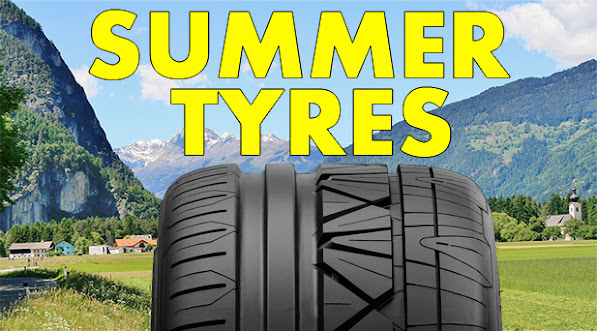Types of Tyres For Your Vehicle
Tyres are becoming increasingly advanced pieces of equipment today. Replacements for the traditional rubber rings include large, sturdy tyres made of steel, contemporary materials, and durable rubber compounds. They are in and of themselves engineering marvels. Additionally, as technology develops, we have a wider variety of options to choose from, each one tailored to the circumstances we are dealing with.
It can be a bit challenging because there are several Car Tyres Fareham classifications and a wide variety of tyre kinds. The best place to start is to be aware of the many tyre kinds that will work best for your driving style.
Based on three simple principles, there is a suitable tyre type for everyone. If you take a moment to reflect about the type of driving you perform on a regular basis, you can be sure you are selecting the best set for you.
See if you can classify yourself depending on your car, the weather where you live, and how you use your tyres on a regular basis by looking at the different tyre kinds below.
Touring Tyres
These offer a smooth ride, trustworthy all-season traction, and more agile handling. This also goes by the name Grand Touring tyres. Typically, they have speed ratings that are higher than all-season tyres.
Touring tyres are mainly used on high-performance sports cars and sedans as these vehicles often need stronger handling abilities than their tyres. Understanding the many tyre kinds and which one would work for you is important when buying tyres.
Once you've determined what tyre options are available for your car, you can choose which type is ideal for you based on your driving prowess.
Performance Tyres
The diameters and lateral grooves of performance tyres are often greater, especially in dry and rainy situations.
They all share silica-rich mixed materials for improved grip in all conditions as well as significantly thick sip surfaces. Compared to touring tyres, these tyre types move faster.
Performance tyres are actually made for a wide range of vehicles, including sports cars, utility vehicles, and luxury cars. They are mostly used to increase handling, especially on slick roads.
Summer Tyres
Summer tyres function well both in dry and rainy conditions. They are not designed for all-season traction. They are actually made for hot climates and offer grip and delicate handling in wet or dry situations. Summer tyres are only safe above 45° Fahrenheit.
The summer tyres generally feature good contact patches, grooves with enough circumference to prevent hydroplaning, and no tearing.
Winter Tyres
The winter tyres have probable traction in harsh winter settings of less than 45 degrees. There are many different purposes for winter tyres, and they are mainly made for many different types of vehicles.
They function to expel snow and slush accumulation from contact patches thanks to their strong sipes and deep perimeter grooves. The two varieties of winter tyres are those with and without spikes.
Winter tyres with metal studs or pins provide the maximum amount of grip on icy roads. Non-studded tyres provide a respectable grip on snow and gives great traction in winter conditions.
Highway Tyres
Highway tyres have an all-season running pattern and accommodate the large weights of trucks or SUVs.
The majority of highway tyres are primarily made of sturdy materials, and for long-lasting performance, their tread patterns to wear unevenly over time. They have a special pattern of siping for greater grip throughout the whole season.
All-Terrain Tyres
Compared to highway or trail tyres, all-terrain tyres typically have a more aggressive tread pattern. These tyres have additional voids and thread blocks, which provide traction while driving off-road.
There is frequently a severe weather service emblem on all-terrain tyres. They function well on sand, gravel, and light dirt. In addition to off-road thrills, they offer stability and comfort on the freeway. All-terrain tyres may be necessary for light vehicles, pickup trucks, SUVs, and campers.
All Season tyres
In the spring, summer, and fall, all-season tyres deliver the highest performance. Even some firms have begun to rebrand all-season tyres as "3 season tyres." Unfortunately, this tyre is not the best choice for winter driving in cold and snowy weather. At temperatures below 7 degrees Celsius, these tyres frequently lose their traction.
All-season tyres frequently have smooth, straight treads that resist water when driving in the rain and improve traction on the road in warm to hot weather.
4x4 Tyres
Most road tyres are mainly designed for efficiency, speed, and a more comfortable ride. But 4x4 tyres provide more traction, hardness, and stability. Understanding your tyres is crucial. Due to its tough tread pattern, higher tread depth, high rubber ratio, and reinforced sidewalls, 4x4 Tyres Fareham offers increased steering precision on challenging terrain.
The tyre business is arguably the most complex and comprehensive automotive industry sector. Several tyre brands and types are available, but only one is ideal for your particular needs. To ensure that your vehicle performs as intended, selecting the appropriate pair of tyres is crucial.


Comments
Post a Comment